How is my worst grade in fifth grade spelling when I am top in class? How can I solve complex math problems but I sometimes cannot to read simple words? How do I make connections and figure out patterns in books that others cannot see but also take the longest time to read it? While I may have once been afraid to admit that I’m Dyslexic, I stand here today with this accepted fact. Dyslexia, it’s something that inexplicably and directly affects my life and perhaps is the very source of my brilliance. So why should you read this post about a subject that most likely has little to no relevance in your life? In fact Dyslexia does impact you either directly or indirectly and understanding it is crucial to our success as human beings.
What is Dyslexia?
One morning I went to coffee with a friend and I decided to tell him I was Dyslexic, and he told me that Dyslexia didn’t matter because one day there’ll be robot eyes. The thing is that robot eyes would not help a Dyslexic person one iota as Dyslexia is completely separate from the eyes.
Is actually defined as a learning disability that affects the areas of the brain that processes information and reading. Dyslexia can make it hard to decode words and process phonics. In history’s early days it was often described as “word blindness”. Although it has nothing to do with a person’s eyes having Dyslexia can feel like you have word blindness. Another crazy thing about it is that as a human species we hardly know anything about it and most all research surrounding it are based on theories even the definition!
Signs and Symptoms
If you or someone you know may be dyslexic how could you tell? There are many key signs and symptoms. (All information in this section is from Mayo Clinic)
In early childhood some indicators may be…
1: Late talking
2: Difficulty with nursery rhythms
3: Difficulty remembering names
Disclaimer: Not all dyslexics read below their grade level!
During primary school
1: A lower reading level can be a key sign
2: Poor spelling
Adult and really any dyslexic
1: Avoid reading out loud.
2: Reading and writing can be laborious as well,
3: Headaches can be a result of laborious reading and writing
Another disclaimer:
1: Symptoms vary from person to person, as people are all different.
2: Symptoms can even vary depending on the day. There may be days where a dyslexic seems normal and other where they can hardly read.
Causes
The cause is largely unknown but most scientists agree that it is genetic, as if one parent is dyslexic then ½ of their children will be. But some other trends include mother smoked or did drugs during pregnancy and premature birth.
Testing for Dyslexia
As of now there is no 100% reliable way to test for dyslexia but if you were to be tested it would have to be by a psycho lists. Testing often involves IQ like tests, also anxiety and other tests to see if symptoms are caused by caused by outside trauma. Psychologists look for you to display symptoms that are typical for Dyslexics. They also calculate whether or your IQ is disportionate to your reading ability. Dyslexia is also not connected to intelligent, for example someone could have an extremely high IQ but if they read at an average level despite effort and they display symptoms of laborious reading and writing then they can still be Dyslexic.
Stealth Dyslexia:
(Information about Stealth Dyslexia can be found in Understood.org)
Another thing to consider on the topic of dyslexia is stealth dyslexia. Stealth Dyslexia is when a person has an extremely high IQ but they read at an average level despite effort and they display symptoms of laborious reading. It’s where commonly intelucal and gifted people gift go “under the radar” and don’t get diagnosed with Dyslexia because they are smart and have good grades. This is a problem as it shows the lack of education about Dyslexia and the astigmatism that a smart child cannot be diagnosed with it, but that’s entirely backwards. If someone with stealth
Dyslexia can get good grades then what’s the big deal?
Often these kids go under the radar and compensate for their Dyslexia using their intellect. This becomes a problem as the workload gets heavier and more complex because eventually the mind can no longer compensate and the Dyslexic loses their success. Stealth dyslexia is the same regular Dyslexia as stealth dyslexics and regular have similar brain wiring when it comes to reading and language in general.
Is Dyslexia a learning disability or a learning difference?
(Information about Dyslexic advantages can be found on Dyslexic Advantage cite)
When physiologist work with dyslexic they tend to notice two patterns among them, the negative symptoms but they also noticed a set of common strengths. These strength are grouped into four categories in one single acronym.
M.I.N.D.
M- Material reasoning or spatial awareness.
I- Interconnected reasoning connecting patterns reasoning and creating analogies.
N- Narrative reasoning which involves reasoning using fragments from your memory and examples and simulations,
D- Dynamic reasoning is the ability to predict the future based on what has previously happened in patterns of the world.
All of these strengths are relatively new research and information, so far the only one that has been deeply investigated is the M strengths or visual spatial reasoning.
M Strengths
People with great M-Strengths find it extremely laborious to read and write or put thoughts into words as their brain is image and not language oriented. People with great M- strengths also describe their ability to be successful as their ability to directly perceive an answer through a non verbal linguistic process. 80% of dyslexics scored above average on a test that assess visual spatial reasoning and ⅔ scored above the 80th % of the population. Dr. Linda Silverman (psychologist) found it common for highly gifted kids to have a visual spatial learning style.
What jobs do visually oriented people go into?
It is common to see a disportionate amount of dyslexics in fields like design and arturture and even Astrophysics. But why astrophysics? A study done with Michael H. snvhss, a Dyslexic physis tested the ability of his teammates to process large amount of visual information in space and access what it meant. His dyslexic colleagues greatly out preformed non-dyslexics and were an average of 2.6 sec faster, even when the visual picture was blurred. Not only were they faster at material reasoning but other also found that Dyslexics commonly have sharper and better peripheral vision.
Successful Dyslexics
So if Dyslexics can be smart why don’t we ever hear about successful Dyslexics? In fact many entrepreneurs and successful people are Dyslexic as Dyslexia does not affect your determination or intellect
Possible Famous Dyslexics
For example while it may be impossible to ever know Albert Einstein was Dyslexic. He is considered a probably dyslexic due to his poor scoring in school, other dyslexic related symptoms as well as how he thought of the world.
Leonardo Da Vinci is also considered a probable dyslexic as he wrote many notes backwards and created many visual spatial models of flying machines. Dr. Mayna Wolf said “that as a researcher working two decades with hundreds of dyslexic children and and adults she is convinced that Da Vinci was dyslexic.” Other successful and talented people with a gift of Dyslexia include Magic Johnson, John Lennon and Matthew H Schneps, the astrophysics who performed the previous experiment with his coworkers.
Clearing Myths
(section backed by Dyslexia Help)
Dyslexia is a lifelong issue no magic pill or cure.
It is not rare 5% up to 17% in some places of the US have been identified as dyslexic.
Dyslexia has nothing to do with intellect, having Dyslexia does not make you stupid or dumb, Dyslexics can be if not as much and if not more than creative and accomplished as normal brained people.
Conclusion
So what does all of this information conclude, how is it applicable to our lives today? From this I can say that Dyslexics can have a harder time functioning in a verbal linguistic world when their brains use non verbal processes, this makes it harder to process language information especially reading. But also from this information we can conclude that many Dyslexics have a heightened ability to reason, especially with 3D objects in space. Because of this ability Dyslexics may be able to provide the answer faster in certain non verbal instanis. While it may be defined as a learning disability having a “learning disability” relies most often in the terms of which we are taught. Perhaps public schools taught the way Orton Gillingham taught Dyslexics. Would all non Dyslexics then be labeled as having a disability because the information presented to them was in the opposite way their brain was wired to learn?
My argument is that we stop labeling it as a disability and start teaching in a way that helps students use their brain strengths in a way that is practical for life. If mankind figured out a way to teach that unlocks and heightens Dyslexic strengths then we could use our differences to come to a complete understanding of our world. For example If any question was present to the human race it is imperative to approach the question in all ways of thinking. With different brained people, like Dyslexics, we can have a variety of perspectives about our world. If we unlock Dyslexic strengths then we can have a more complete understanding of our world.
Unlocking Dyslexic Strengths
The first step to unlocking these strengths is understanding Dyslexics.
[embedyt] https://www.youtube.com/watch?v=bxkBqFbbAP0[/embedyt]
Video Takeaway:
“Everybody’s a genius. But if you judge a fish’s ability to climb a tree then it will believe its whole life that it is stupid, the thing is that Dyslexics are innately prefect swimmers, just put us back into the water.”
Featured Image: CC0 Creative Commons
